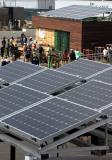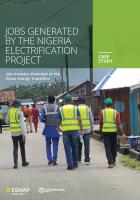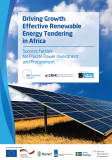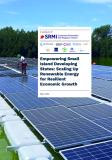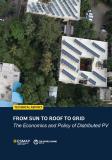Publications
The Solar Hybrid Mini Grids for Rural Economic Development component of the Nigeria Electrification Project created direct and indirect employment opportunities across various skill levels in Nigeria. The project contributed to local economic growth, gender diversity, and the expansion of small businesses in newly electrified areas. This case study seeks to shed light on the employment outcomes associated with the World Bank’s investments in mini grids made as part of the NEP, which was approved in 2018 and is expected to close in 2023. Key findings from the case study are covered in this report.
Explore More
Case Studies
Energy Sector Management Assistance Program (ESMAP). 2024. Jobs Generated by the Nigeria Electrification Project: Job Creation Potential of the Clean Energy Transition - Case Study. © Washington, DC: World Bank. http://hdl.handle.net/10986/40954. License: CC BY 3.0 IGO.
